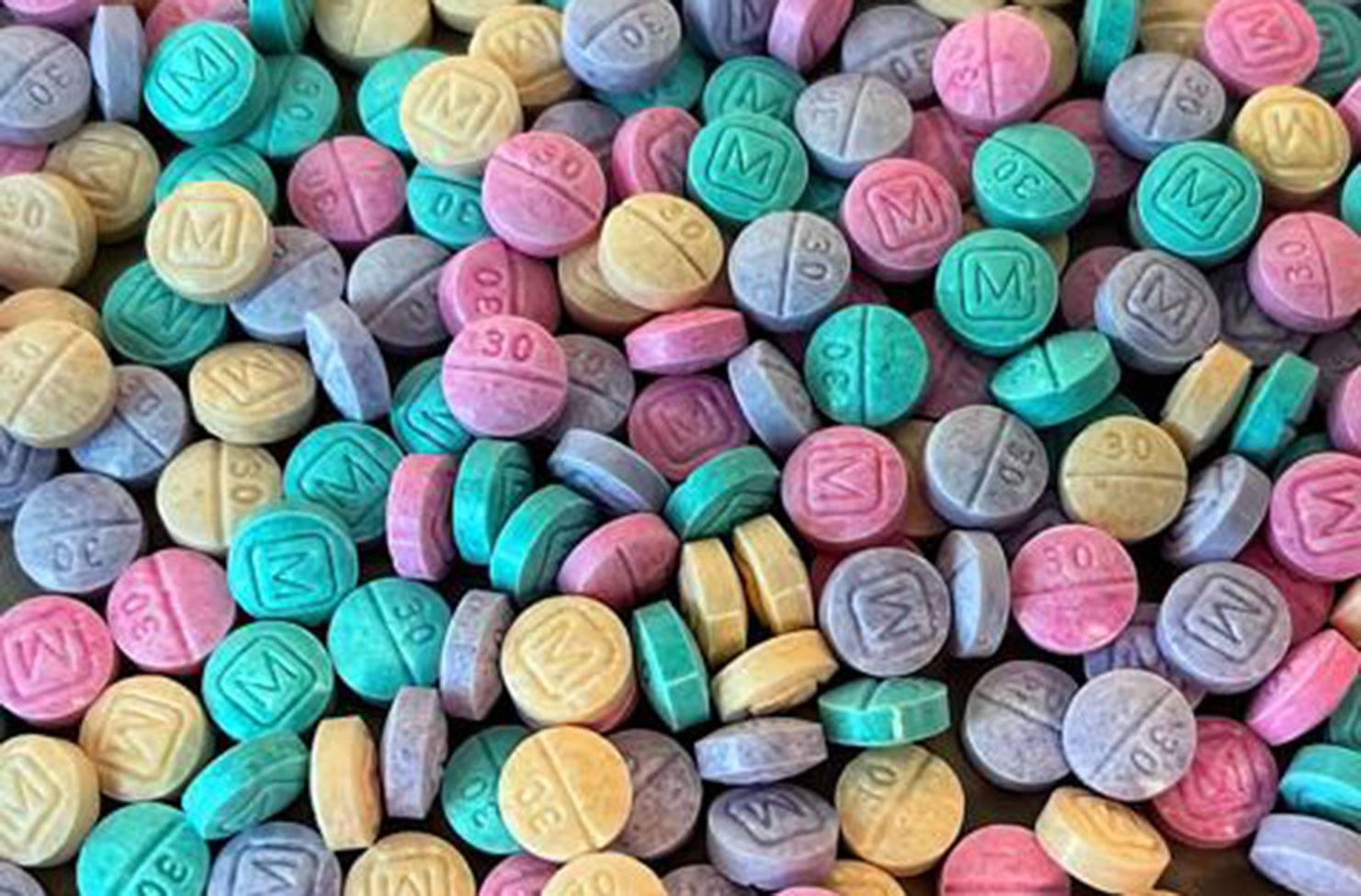Halloween + Fentanyl = Community Awareness
Halloween is less than two weeks away. It is a time in many cultures to commemorate those who have passed on, and to celebrate life. Most of all, Halloween is a special time for children. Trick or treating is a time-honored tradition but is not without its risks. The reports of children getting candy that had been poisoned has been an urban legend that in recent years has been debunked. However, these days, there is poison that some may mistake for candy. It is called “rainbow fentanyl.”
Knowledge is Power!
Sometime in the past year or two, fentanyl has been made by drug cartels into a pill that resembles Oxycodone. In more recent months, these same pills are showing up in a multitude of different colors, while still resembling the Oxycodone pill. The colors are similar to the colors of sidewalk chalk that children play with. It is unknown how potent these fentanyl pills are but is estimated that most pills have enough fentanyl to lead to overdose or death.
Fentanyl, Oxycodone, and Oxycontin are all synthetic opioids. Fentanyl is 50 to 100 times more potent than other synthetic opioids and heroin. Fentanyl began to show up in heroin, then found its way into other drugs like cocaine and meth. Now it is everywhere, and drug suppliers have started distributing it more, in place of heroin. More than 100,000 people died last year from fentanyl overdoses. The opioid epidemic has not slowed down.
Safety First
For parents out there, it is important to be mindful of what substances children may be exposed to. Many teenagers and children begin to experiment with marijuana, and research has shown they are moving from marijuana into fentanyl. These are dangerous times, and there are reasons why manufacturers are making their drugs with bright, friendly colors. If you think something doesn’t look right, like tampered candy containers or unfamiliar candy that’s bright in colors or chalky, please throw it away in a manner where others will not have access to it. Although it may be difficult, only take candy from trusted people and organized Halloween events.
If you suspect someone is suffering from an overdose, please call 9-1-1 immediately. Even if the person wakes up or seems better after one or two doses of naloxone, emergency medical assistance is still necessary. A medical professional should evaluate anyone who has experienced an overdose as soon as possible.
If you need to talk to someone, please reach out
It’s okay not to feel okay. If you or someone you know has been struggling with their emotions, behaviors, or substance use please reach out to us. We can help you find appropriate tools and services that could help you overcome obstacles in your life. We are here for you. Please contact the Southern Ute Behavioral Health Division or the Native Connections Program at 970-563-5700 for more information or to set up an appointment to see a counselor or therapist.
References
Centers for Disease Control and Prevention- Opioids in the Workplace: Responding to a suspected opioid overdose (2018). Retrieved from Responding to a suspected opioid overdose | NIOSH | CDC
United States Drug Enforcement Administration- One Pill Can Kill (2022). Retrieved from One Pill Can Kill (dea.gov)
OpiRescue- Start Rescure (2022). Retrieved from OpiRescue | Start Rescue
NEW Nationwide Suicide and Substance Use Crisis line: 9-8-8
Simply calling or texting 988 or chatting 988Lifeline.org will connect you to compassionate care and support for mental health-related distress. #988Lifeline
LOCAL RESOURCES
- Southern Ute Health Center- Behavioral Health Division, CR 222 Durango, CO 970-563-5700. For local Native Americans. We are here to support mental health, substance use prevention, treatment, and recovery. Please call to schedule an appointment to talk to someone.
- Southern Ute Division of Social Services 116 Capote Drive, Ignacio, CO 970-563-2331 or dss@southernute-nsn.gov for local Native Americans needing assistance with child welfare needs and family support.
- Southern Ute Police Department: Anonymous Tip Hotline Do you have information about a crime? Please call 970-563-4999. This “Tip Line” was designed to allow you the ability to provide law enforcement with information, anonymously, if need be, regarding criminal, drug, or suspicious activity. The “Tip Line” is monitored around the clock by SUPD Investigators, but it DOES NOT replace 9-1-1 or the non-emergency police number 970-563-4401.
- St Ignatius Catholic Church, Pastor Cesar Arras, 14826 CO-172, Ignacio, CO 970-563-4241.
- Ignacio Community Church, Pastor Randall Haynes 405 Browning Ave, Ignacio, CO (currently located inside ELHI) 970-759-3633
- Second Wind Fund of the Four Corners, believes that every child and youth at risk of suicide should have access to the mental health treatment they need. We match children and youth at risk for suicide with licensed therapists in their communities, 720-962-0706.
- Women’s Resource Center, creates personal, social, and professional growth opportunities for all women in La Plata County, 970-247-1242.

